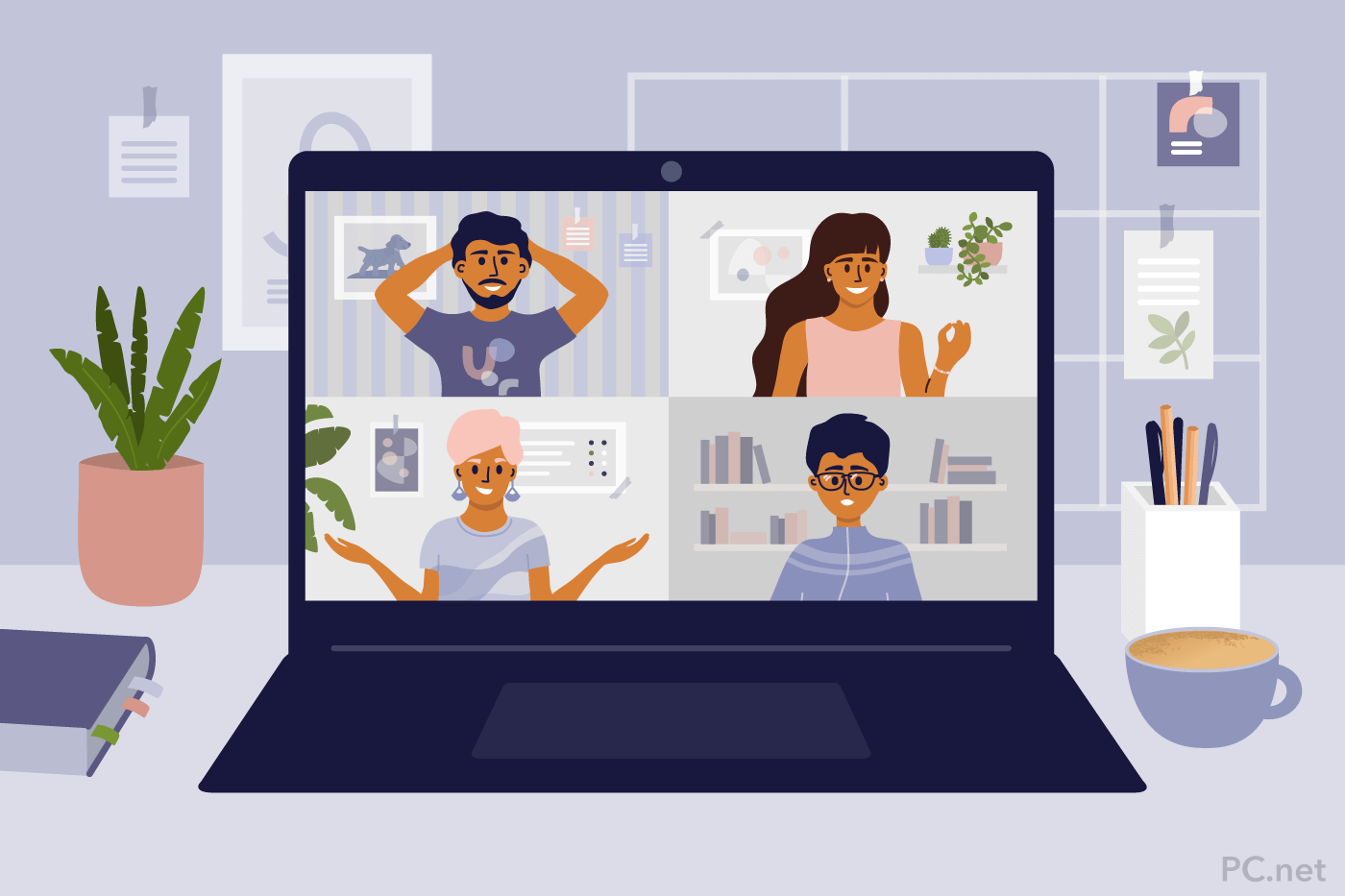Top 10 Tips for Better Video Conferencing
May 2020 — Tip of the Month
In the stay-at-home and work-from-home world of 2020, many of us are video conferencing more than usual. Some of us are doing it for the first time. Regardless of your experience, here are ten tips to follow for great online meetings.

Before the Video Conference
- Test the video conference link ahead of time. Make sure you have the right software, such as the Zoom app or a supported web browser. If you have to download and install the software when it's time to join, you'll probably be a few minutes late.
- Test your audio and video ahead of time. Make sure your microphone and webcam are working. You can test your camera with an app like Zoom or FaceTime, and you can check your audio levels in the Sound control panel (Windows) or system preference (Mac).
- Have a backup headset available. If you are using speakers for audio, you or the other conference attendees may hear an echo. You can often reduce or eliminate annoying echos by using headphones or a headset like Apple AirPods.
- Declutter your background. Make sure you don't have anything distracting (or embarrassing) in the background of your video. Choose a location with a simple and clean background if possible.
- Check your lighting. Make sure you have more light in front of you than behind you. If sunlight is coming through a window behind you, your face might appear as a dark silhouette. Increasing your screen brightness is an easy way to lighten your face in the video.
- Dress appropriately. Just because you are meeting "virtually" doesn't mean there is no dress code. Present yourself as well to others online as you would in person.
During the Video Conference
- Look at the screen or the camera. A video conference is not quite as personal as an in-person meeting, but you can still make eye contact. If you are always looking down at your keyboard or notes, it may seem like you are not interested or paying attention.
- Speak loudly and clearly. Several factors can reduce the audio or video quality of an online meeting. Therefore, it is extra important to speak up, speak clearly, and occasionally pause to make sure others can understand you.
- Mute yourself if you are not speaking for a long time. If you don't plan to talk for a few minutes, it is OK — and probably best — to mute yourself. This prevents unwanted noises from distracting others during the meeting. Just don't forget to unmute yourself before you talk!
After the Video Conference
- Make sure to leave the conference Don't forget to close out of the browser window or quit the video conferencing application when the meeting ends. Even if your webcam light is off, your microphone or screen share may still be active. To protect your privacy, make sure you leave every video conference after it ends.
 Home
Home April 2020
April 2020